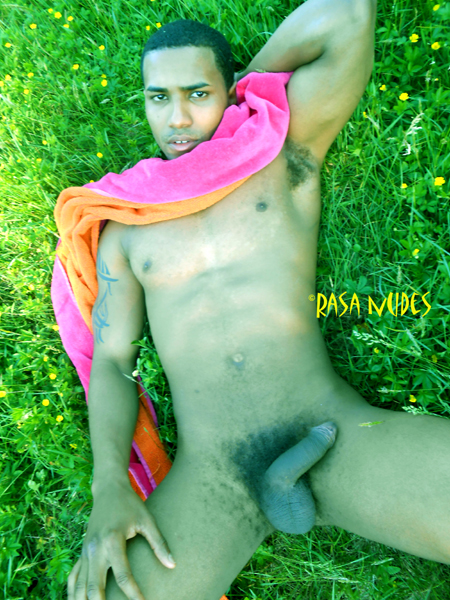SEXUAL FREEDOM FOR WOMEN AND THEIR SUPREMACY IN ANCIENT DAYS. PATRIARCHY IS A NEW INVENTION, THE CULTURE OF DEATH VS. THE CULTURE OF LIFE. SEE HOW IT ONCE WAS.
SUMER – “THE WOMEN OF FORMER DAYS USED TO TAKE TWO HUSBANDS…

THE ROLES OF MALE AND FEMALE ARE REVERSING FROM MALE DOMINANT TO FEMALE DOMINANT, AS IT WAS FOR HUNDREDS OF THOUSANDS OF YEARS
Professor Saggs wrote in 1962 of the societies of Mesopotamia, which included both Sumer and Babylon. Mesopotamia generally refers to the areas of Iraq along and between the Tigris and Euphrates rivers, starting at the Persian Gulf and reaching up to Anatolia. He examined the relationship of the reverence for Goddesses to the status of women in Sumer (about 3000 BC – 1800BC, in southern Iraq), concluding that in the earliest periods women were much better off than in the later periods, and that they gradually lost ground over the years. Professor Saggs reports that The status of women was certainly much higher in the early Sumerian city state than it subsequently became…There are hints that in the very beginning of Sumerian society, women had a much higher status than in the hey-day of Sumerian culture: this chiefly rests on the fact that in early Sumerian religion a prominent position is occupied by goddesses who afterwards virtually disappeared, save – with the one exception of Ishter – as consorts to particular gods. The Underworld itself was under the sole rule of a goddess, for a myth explains how she came to take a consort; and goddesses played a part in divine decision making assembly in the myths. There is even one strong suggestion that polyandry may have at one time been practised, for the reforms of Urukagina refer to women who had taken more than one husband; some scholars shied away from this conclusion suggesting that the reference might be only to the remarriage of a widow but the wording of the Sumerian text does not support this.
I may add that the Goddess of the Underworld does not merely take a consort but has Her hair pulled, is dragged from the throne and is threatened with death until She agrees to marry Her assailant, the god Nergal, who then kisses away Her tears, becomes Her husband and rules besides Her.
The Urukagina reform is dated at about 2300 BC. It reads, “The women of former days used to take two husbands but the women of today would be stoned with stones if they did this.” Polyandry has been reported in the Dravidian Goddess-worshiping areas of India even in this century.
The laws of the Sumerian state of Eshnunna, written about 2000 BC, were found in a small town, thus possibly reflecting older attitudes. In them we read that “if a man rejects his wife after she bears a child, and takes another wife, he shall be driven from the house and from whatever he owns and if any accept him they may follow him.” These same laws also state that if a woman is married but has a child with another man while her husband is away at war, she is still legally regarded as the wife of the first man. There is not mention of punishment for adultery. Permission for marriage had to be received from both mother and father.

WE WORSHIP MOTHER GOD THROUGH ALL LIFE, INCLUDING THE MALE BODY AND PENIS. WE DO NOT WORSHIP SUPREME GOD AS A MALE OR A FATHER. WE WORSHIP AN ALMIGHTY MOTHER GOD AND THE MALE, SHIVA, OR BY SOME OTHER NAME, IS HER AUXILIARY — CERTAINLY NOT HER EQUAL.
The position and activities of a group of Sumerian women known as the naditu were studied in depth by Rivkak Harris in 1962. Carefully examining Sumerian text, she found that the naditu women were engaged in the business activities of the temple, held real estate in their own names, lent money and generally engaged in various economic activities. She also found accounts at this same period of many women scribes. Yet we read in Professor Sidney Smith’s chapter in Hooke’s Myth, Ritual and Kingship that the world naditu “probably means women thrown down, that is surrendered to the god.”
In the Sumerian hymns the female precedes the male. The epic of Gilgamish reveals that the official scribe of the Sumerian heaven was a woman, while the initial invention of writing was credited to a Goddess. As I mentioned previously, it may well have been the priestesses, possibly the naditu who kept the temple business accounts, who first developed the art of writing. The earliest examples of writing (from about 2300 BC), discovered in the temple of the Goddess Inanna of Erech, where many of the naditu, women lived, turned out to be the temple’s accounts of payment for land rental.
Rasa Von Werder presents a major website, a continuation of the sensationally successful
www.WomanThouArtGod which houses thousands of her photos, including erotic. This website educates regarding sex & male-female relationships. It is a far cry from the celibacy Rasa practiced for most of her life – she will now espouse the goodness of sex. There are shrines to the Lingam (penis), Yoni (vagina) & a shrine to Rasa as Guru. There are teachings on Tantra, the way to God by worship of the female body. ALL RELIGIONS CAME FROM FEMALES. WHEN PATRIARCHY TOOK OVER, THEY APPROPRIATED THESE RELIGIONS FOR THEMSELVES, CREATED A “FATHER” GOD, & TWISTED THE SCRIPTURES AGAINST WOMEN IN FAVOR OF MEN. TODAY WE RETURN TO THE ORIGINAL PRECEPTS, HERE (ON THIS SITE) YOU SEE PART OF THAT REVELATION.

SOON MEN WILL BE SELECTED FOR PENIS SIZE THE WAY WOMEN ARE DESIRED FOR BUSTLINES OR BOOTIES. BUT THEY WILL ALSO HAVE TO HAVE NICE BODIES AND FACES. LOOKS WILL BE FOREMOST, HEALTH, CHARM, INTELLIGENCE, NO MORE WOMEN CHOOSING MEN BECAUSE OF SECURITY – THEY WILL HAVE THEIR OWN. MEN WILL BE LUXURIES OR THINGS BOUGHT, THE WAY WOMEN ARE TODAY.
Stephen Langdon, eminent Oxford scholar, writing in 1930, observed that the legends associated with the Sumerian Queen of Heaven, Inanna, had probably been worked out under a “matriarchal system” of society. This is also suggested by the changes in the image and role of the Goddess Inanna, when we find her centuries later as the Babylonian Ishtar. In the Sumerian myth, Inanna exhibited Her power and omnipotent wrath at Her son/lover Demuzi’s refusal to show proper respect to Her by turning him over to the demons of the Land of the Dead, while thirteen centuries later, in the Babylonian myth of Ishtar, a newer version of much the same story, the Goddess grieved at the accidental death of the youth.
In general, the records of the Sumerian reforms of Urukagina of about 2300 BC were strongly communally oriented. They referred to the fruit trees and food of the temple lands, which were to be used from those in need rather than by priests, which apparently fast becoming the custom at that time. The fact that on these tablets it was repeatedly mentioned that there reforms harked back to the way things were done in earlier periods suggests that the earlier societies of Sumer were more communal. Most interesting is the word used to label these reforms, amargi, which has received the double translation of “freedom” and “return to the mother.”
***** Rasa Von Werder is now building a major website, a continuation of the sensationally successful
www.WomanThouArtGod which will house many thousands of her photos, including erotic. This website will educate regarding sex & male-female relationships. It is a far cry from the celibacy Rasa practiced for most of her life – she will now espouse the goodness of sex. There will be shrines to the Lingam (penis), Yoni (vagina) & a shrine to Rasa as Guru. There will be teachings on Tantra, the way to God by worship of the female body. *****
———————————————————–
ELAM – NAKED BEFORE THE HIGH PRIESTESS
In 1973 Dr. Walther Hinz suggested that the original supremacy of the Goddess in Elam (slightly east of Sumer and in close contact by 3000 BC), indicated a “matriarchal approach” in the devotees of Her religion. He explained that, though She was supreme in the third millennium, She later became secondary to Her consort Humban; She was then known as the Great Wife. In Susa, at the northern end of the Elamite territories, the male consort was known as In Shushinak. In earliest times he was known as Father of the Weak, by mid-second millennium he was called King of the Gods and in the eighth century BC he was invoked as the Protector of the Gods of Heaven and Earth.

THERE WILL BE A PREPONDERANCE OF MALES ENTERTAINING WOMEN IN CLUBS, THEATERS AND BROTHELS, OR PRIVATE VENUES, AND INCLUDING INTERNET SITES. MEN FOR WOMEN WILL BE THE BIGGEST THING.
In the early periods of Elam the deities appeared to have been served by female and male clergy, the men appearing naked before the high priestess, as was the custom in early Sumer. Hinz explains that in Elam, much like the naditu women of Sumer, “One special group among the priestesses was formed by those women or maidens who had dedicated their lives to the Great Goddess.” These women were primarily involved in the buying, selling and renting of land.
Legal documents from Elam, primarily from after 2000 BC, reveal that women were often the sole heirs. One married woman refused to make her inheritance joint with her husband and intended to pass the inheritance to her daughter. Another tablet stated that a son and a daughter were to share equally; the daughter was mentioned first. Several tablets described situations where the husband was leaving everything he owned to his wife and insisted that their children would inherit only if they cared for their mother with the greatest respect.
Rasa Von Werder is now building a major website, a continuation of the sensationally successful
www.WomanThouArtGod which will house many thousands of her photos, including erotic. This website will educate regarding sex & male-female relationships. It is a far cry from the celibacy Rasa practiced for most of her life – she will now espouse the goodness of sex. There will be shrines to the Lingam (penis), Yoni (vagina) & a shrine to Rasa as Guru. There will be teachings on Tantra, the way to God by worship of the female body.
————————————————————
BABYLON – “TO HOLD AND MANAGE THEIR OWN ESTATES”
In Mesopotamia, the Akkadiens, after the rise in position under Sargon in 2300 BC, eventually gained supremacy in about 1900 BC gradually superseding the Sumerians as the cultural and political leaders of the area. They formed the nation known as Babylon, installing their capital in the city of Babylon on the central Euphrates. The Akkadian language of the Babylonians became the international language of the Near East, but the religion of the Sumerians was incorporated into the Babylonian culture and the Sumerian language was used much as Latin was employed in the masses of Roman Catholic Church all over the world. By 1600 BC the Kassites gained control of Babylon. Linguistic evidence suggests that the Kassites were ruled by the northern invaders, the Indo-Europeons, who had gradually infiltrated into Babylon and Assyria.

MEN WILL JUMP THROUGH HOOPS TO BE BEAUTIFUL JUST AS WOMEN HAVE BEEN FOR YEARS…..COSMETICS, SURGERY, CHARM SCHOOLS, SELF HELP BOOKS, DANCING LESSONS, GYMS, GOOD CLOTHES THAT SHOW THE BODY, WORK AT COMMUNICATION SKILLS, WORK AT COMPANIONSHIP, WORK AT GIVING ORAL SEX AND ALL THE PLEASURES OF THE BEDROOM.

RASA VON WERDER HAS SELECTED THE MOST BEAUTIFUL MALES IN THE WORLD FOR SHIVA, LINGAM WORSHIP. IF YOU QUALIFY AS A MODEL OR KNOW ANYONE WHO DOES, CONTACT THIS SITE.
Despite a loss of status in the position of women in Babylon, compared with their predecessors of Sumer – a loss that was accompanied by the gaining ascendancy of male deities such as Marduk, who mythically murdered the Creator Goddess Tiamat to gain and secure his position – the women of Babylon still continued to hold certain rights of independence. The following quote is based upon the law code of Hammurabi, which preceded total Kassite control, but which may have been somewhat affected by continual Indo-European incursions from the north from at least 2000 BC onward. W. Boscawen, writing in 1894, reported that the freedom granted to the women in Babyonia allowed them to hold and manage their own estates and this was especially the case with priestesses of the temple, who traded extensively…One of the most interesting and characteristic features of this early civilization of the Babylonians was the high position of women. The mother here is always represented by a sign which means “goddess of the house.” Any sin against the mother, and repudiation against the mother was punished by banishment from the community. These are the facts which are evidently indicative of a people who are one time held the law of matriarchal descent.
According to de Vaux, writing in 1965, “In Babylonian law, the father gave the young bride certain possessions, which belonged to her in her own right, the husband having only the use of them. They reverted to the wife if she was widowed or divorced without fault on her part. In Babylon she could acquire property, take legal action, be a party to contracts and she had a certain share in her husband’s inheritance.”

What does pornography (created by old men) teach our boys? To use, degrade and punish women through sex.

Why don’t boys and men believe in women as symbols and embodiments of God? Because their religion is twisted – they have been brainwashed to believe many falsities. One is that God created us and went away. Second is that women are not as great as men, that the only Son of God was a man, or that all priests and spiritual potentates are men. These dastardly lies, along with the Patriarchal teachings within pornography and media, have males totally twisted up regarding women. How can they properly make love to them, believing these lies?

WOMAN IS THE CREATOR, MEN CANNOT CREATE, THAT IS WHY WE MUST HONOR THE WOMAN ABOVE MALE. MALE GIVES HIS DNA TO WOMAN, WOMAN PRODUCES THE CHILD, WOMAN IS THE SYMBOL OF GOD. MAN ALSO IS GOD ON EARTH, BUT AN AUXILIARY IN THE FLESH, TO THE WOMAN.
In Hammurabi’s time women were free to request divorce, and one Babylonian law declared that if a wife did not intend to be responsible for her husband’s premarital debts she had to obtain a document from him stating that he had agreed. This assumption of the financial responsibility in marriage suggests that most women may have taken part in business and financial affairs (as they did in Egypt) and perhaps at one time been economically responsible for the family. Seven of Hammurabi’s laws were concerned with the priestesses of the temple, their rights to inherit and what they might or might not pass along to offspring, suggesting that the economic position of these women was a matter of concern and probably was quickly changing.
Ishtar was revered as “majestic queen whose decrees are preeminent.” In one text Ishtar Herself says, “When at a trail of judgement I am present, a woman understanding of the matter, I am.” At Nimrud, in northern Mesopotamia, records of women judges and magistrates have been unearthed, testifying to the vital and respected position of women held there even in the eighth century BC. In several cities there were accounts of Babylonian priestesses who acted as oracular prophetesses, providing military and political advice to kings and leaders, revealing their powerful influence upon the affairs of state. Accounts of women scribes occur in all Babylonian periods, though there were more males in this field than women.
We find in the laws of later Babylonia, which belong to some time at the end of the second millennium, that a married woman might no longer engage in business, unless it was directed by her husband, or brother-in-law. If anyone engaged in business with her, even if he insisted that he did not know she was married, he was to be prosecuted as a criminal.
Rasa Von Werder is now building a major website, a continuation of the sensationally successful
www.WomanThouArtGod which will house many thousands of her photos, including erotic. This website will educate regarding sex & male-female relationships. It is a far cry from the celibacy Rasa practiced for most of her life – she will now espouse the goodness of sex. There will be shrines to the Lingam (penis), Yoni (vagina) & a shrine to Rasa as Guru. There will be teachings on Tantra, the way to God by worship of the female body.
———————————————-
ANATOLIA – “FROM OF OLD THEY HAVE BEEN RULED BY THE WOMEN”
Just north of Babylon, and in very close political contact, was the area known as Anatolia, present-day Turkey, sometimes known as Asia Minor. In Neolithic periods in Anatolia, the Great Goddess was extolled. Her worship appeared in the shrines at Catal Huyuk of 6500 BC. Little is yet known of Anatolia directly after the Catal Huyuk period, but sometimes before 2000 Anatolia was invaded by the Indo-Europeans.
The areas where the northern peoples made the heaviest settlements were in the central and south-central section of Anatolia. Some of them conquered the land known as Hatti. The invaders as well as the original inhabitants thus came known as the Hittites. Most of the Goddesses who appear in the literature and texts of this area, written after the Hittite arrival, were actually the older Hattian deities. One of the most important female deities to survive was the Sun Goddess of Arinna. Upon the Hittite conquests She assigned a husband who was symbolized as a storm god. Although this storm god gained supremacy in most of the cities where the northern people ruled, in Arinna he remained in second place. But curiously enough, Hittite queens appear in several texts in a very close relationship to this Hattian Sun Goddess; they acted as Her high priestess. Though there is no conclusive evidence to substantiate it, the existence of these texts suggest the possibility that the invaders, once martially conquering the land, may then married Hattian priestesses to gain a more secure legitimate right to the throne in the eyes of the conquered population.
In the western sections of Anatolia, matrilineal descent and Goddess worship continued into classical times. Strabo, shortly before the birth of Christ, wrote of northern Anatolian towns, as far east as Armenia, where children who were born to unmarried women were legitimate and respectable. They simply took the name of their mothers, who, according to Strabo’s reports, were some of the most noble and aristocratic of citizens.

FOR THE FIRST TIME, (SINCE PATRIARCHY) MEN WILL HAVE TO LEARN TO BE NICE, AND TO RESPECT WOMEN, AND TO EVEN FEAR THEM.
It is possible that at the time of the Hittite invasions many of the Goddess-worshiping peoples may have fled to the west. The renowned temple of the Goddess in the city of Ephesus was the target of the apostle Paul’s zealous missionary effort (Acts 19:27), This temple, which legend and classical reports claim was founded by “Amazons,” was not completely closed down until AD 380. All along this western section, which included the areas known as Lycia, Lydia and Caria, there were accounts in classical Greek and Roman literature of widespread veneration of “The Mother of all Deities,” along with reports of women warriors, the Amazons. Diodorus wrote of a nation in this area in which “women held the supreme power and royal authority.” According to his reports the queen of this land assigned the tasks of spinning wool and other domestic duties to the men, while law was established by the queen. He claimed that the rights to the throne belonged to the queen’s daughter and succeeding women in the family line. It was in the land of Lydia that the legendary Indo-European Greek Hercules was said to have been kept as a servile lover to Queen Omphale. We may at this point question whether the numerous tales of “Amazon” women may not actually have been the later Indo-European Greek accounts of the women who tried to defend the ancient Goddess shrines and repel the patriarchal northern invaders. Yet we read in the Encyclopaedia Britannica, “The only plausible explanation of the story of the Amazons is that it is a variety of the familiar tale of a distant land where everything is done the wrong way about; thus women fight, which is a man’s business.”
Throughout the classical Greek period, matrilineal descent and suggestions of matriarchy in western Anatolia were repeatedly reported among the Lycians, where they appear to have lingered the longest or were most noted. Herodotus wrote, “As a Lycian who he is and he answers by giving his own name, that of his mother and so on in the female line.” Nicholas of Damascus reported, “They name themselves after their mothers and their possessions pass by inheritance to the daughters instead of the sons.” Heraclides Ponticus said of the Lycians, “From of old they have been ruled by the women.”









